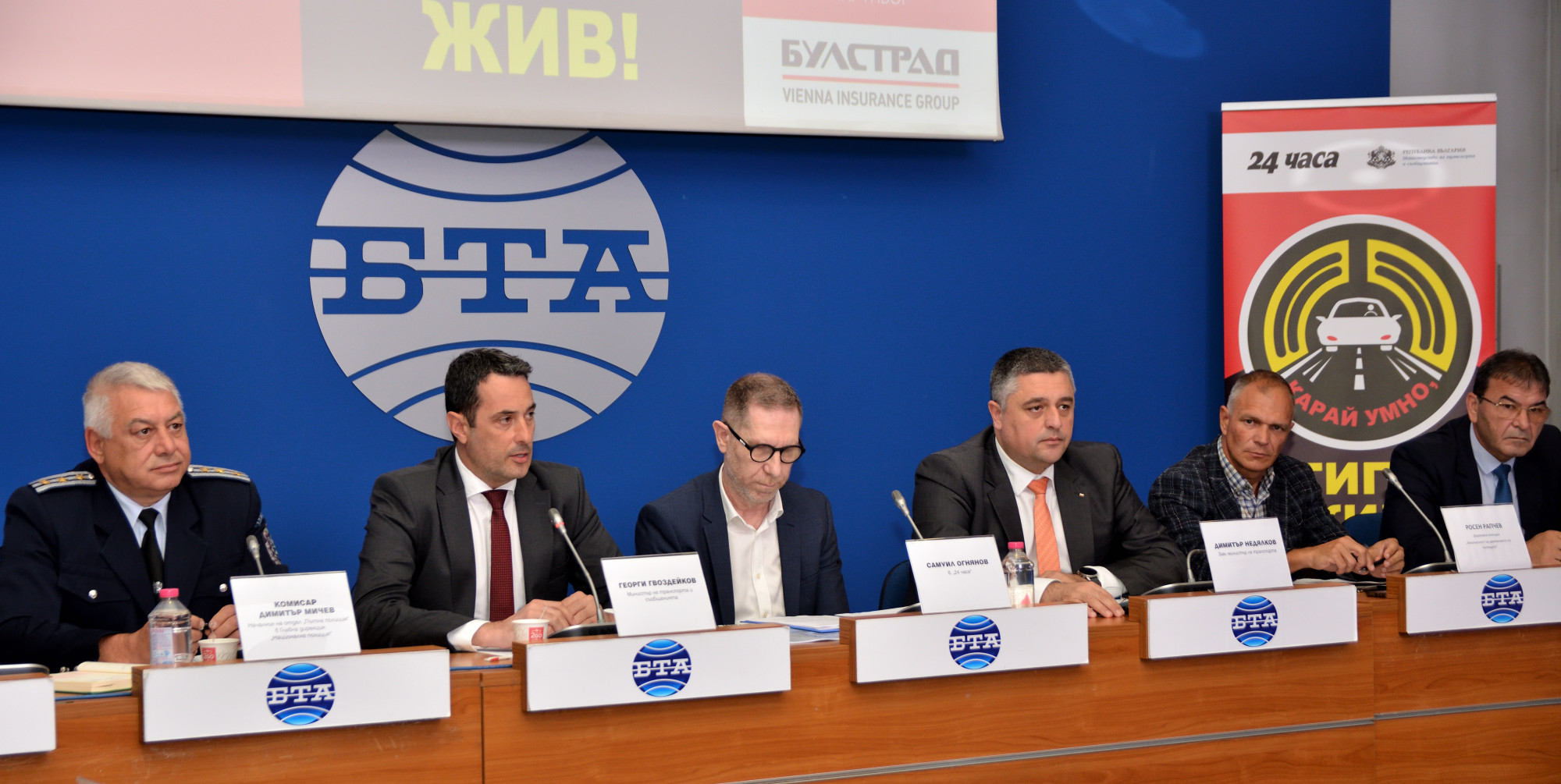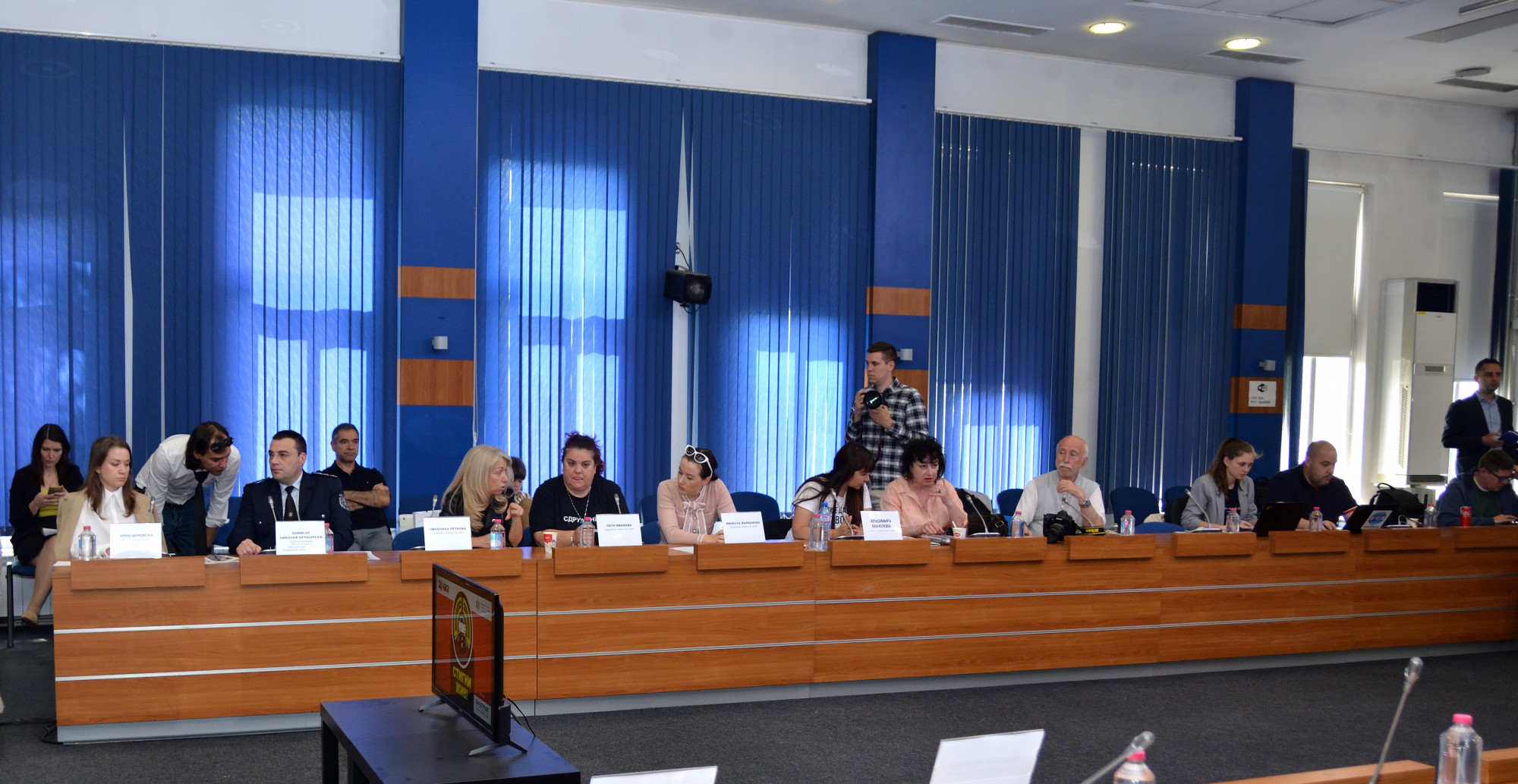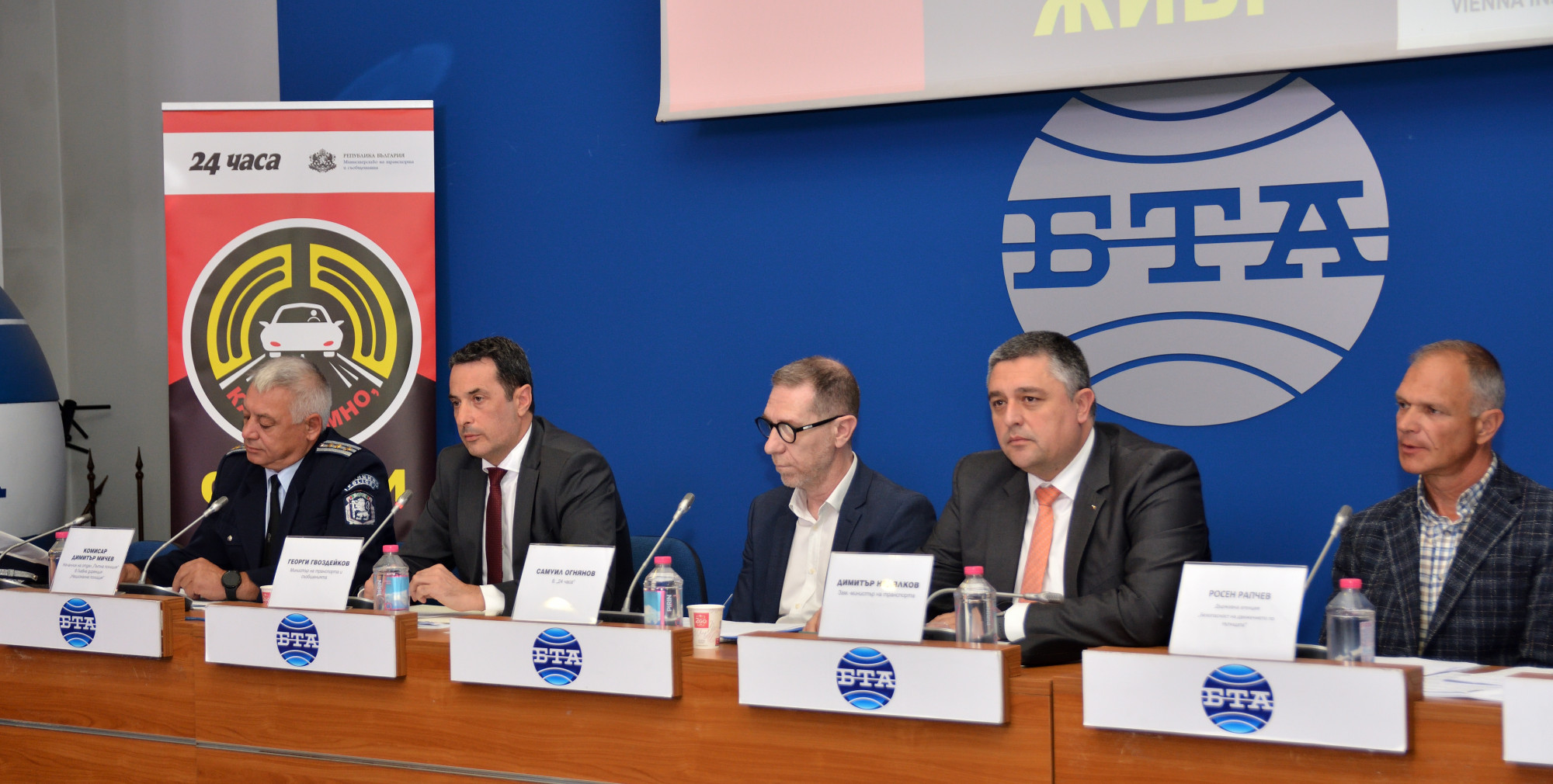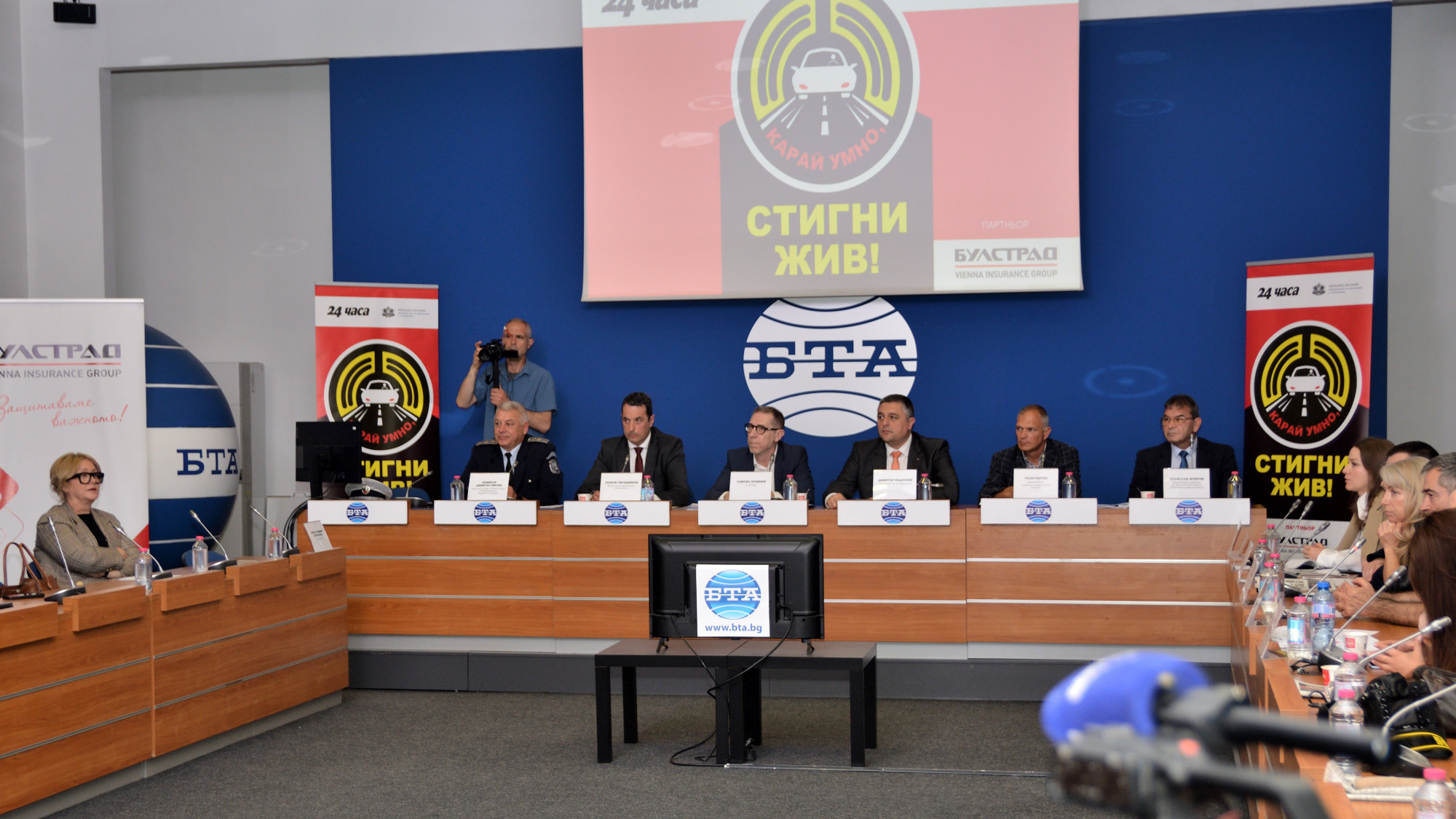Candidate drivers will sit theory and practice tests no more than four times in six months, after which they will undergo further training. These are some of the measures that Minister of Transport and Communications Georgi Gvozdeykov presented during a discussion on road safety, which took place today at the National Press Club of the BTA in Sofia. The forum is part of the campaign ‘Drive smart — get alive!’ of the media platform ‘24 hours’.
‘It is high time we stopped just discussing how we are going to deal with this issue. We need to take concrete actions to solve the road safety problems in a definite way’, said Minister Georgi Gvozdeykov. He announced that amendments to Regulations 37 and 38 have been prepared and are to be published for public consultation. The main changes relate to a significant easing of the administrative burden for training centres, as well as the digitisation of a large part of the services and activities related to driver training.
To ensure that at the end of the training candidates are sufficiently prepared and have acquired the necessary knowledge, skills and behaviour, the arrangements for the examinations are being changed.
The paper learning cards and diaries are abolished. ‘A system will be built that will allow to keep electronic training diaries and records of training in theory and practice’, explained Minister Gvozdeykov. The electronic logbook for theoretical training records the dates and times for each group, the teacher who conducted the training, the topics taught, the attendance and absences of the candidates. This will ensure that candidates who have not attended the required number of hours for each module will not be allowed to sit the examination.
The e-learning record for the practical training will contain information on the training hours, date and time of training, route taken and kilometres travelled.
Teaching certificates will also be issued electronically. Verification of technical examinations and psychological fitness will also be carried out electronically, as these data are contained in the information system and paper documents do not need to be provided.
After the changes, every driver candidate will have access to the information system to be informed at any time about the stage of their training as well as the hours taken. The video recordings of the practical examinations are to be kept for 24 months and, in the event of an appeal, for three months after the proceedings have been concluded.
Driver candidates will not provide proof of education when enrolling for training. The obligation to pass an internal theoretical and practical examination is abolished.
The Deputy Minister of Transport and Communications Dimitar Nedyalkov, who also participated in the discussion, added that the information system will enable the employees of the Executive Agency ‘Road Transport Administration’, who control the activities of the training centres, to have all the information at their disposal at any time.
‘The roadworthiness of vehicles is also essential to the level of road safety. At the moment there are opportunities to manipulate the data from the technical inspection and to allow cars on the road without having actually passed the inspection’, said Minister Georgi Gvozdeykov. ‘In order to stop this, we made changes to the regulation on technical inspections in October last year. They provide for the results of all vehicle measurements to be entered automatically during the inspection in the system of the Road Administration Agency, the Transport Minister said. The deadline for connecting all stations to the system is 22 July 2024, and after that date stations that have not made the connection will not be able to operate.







